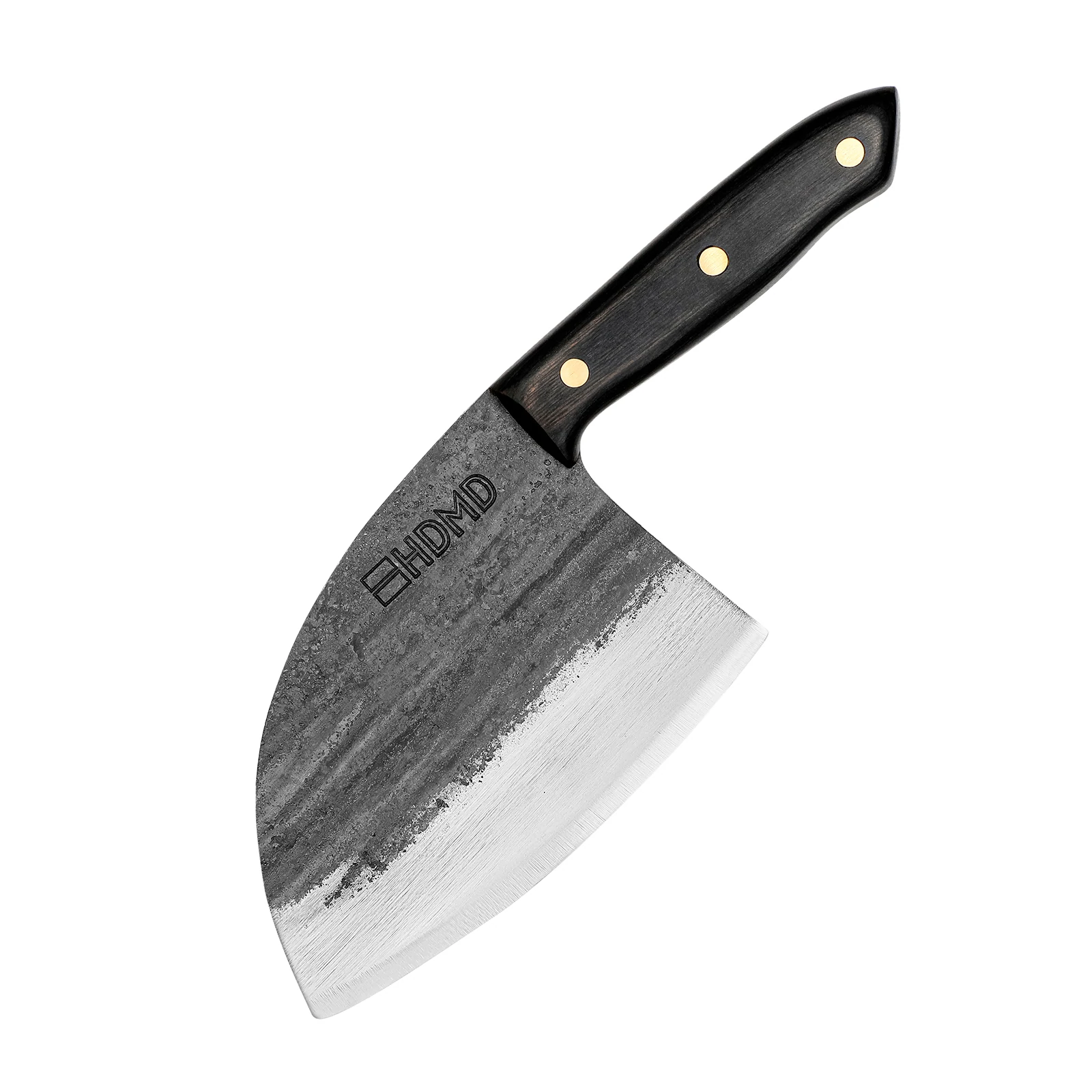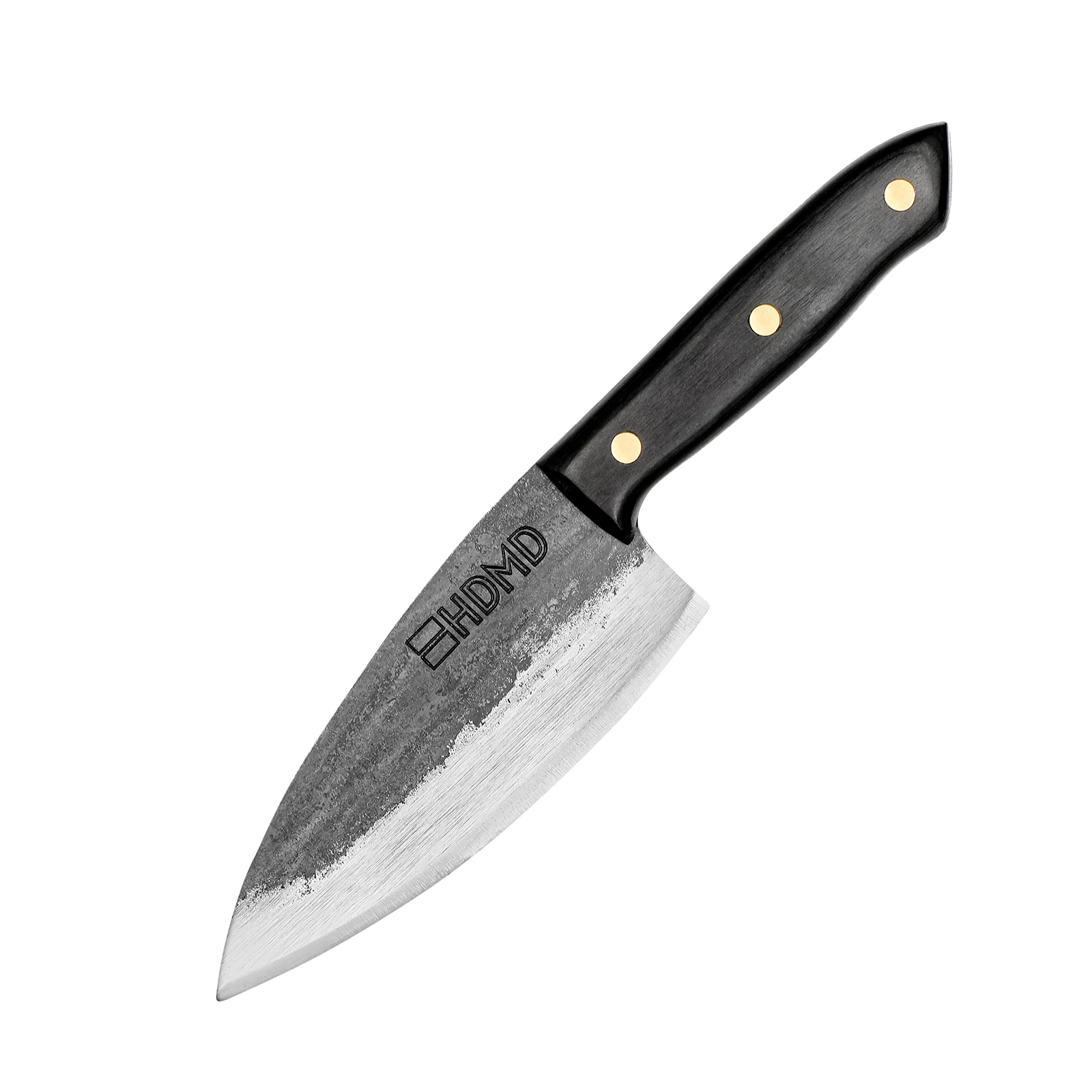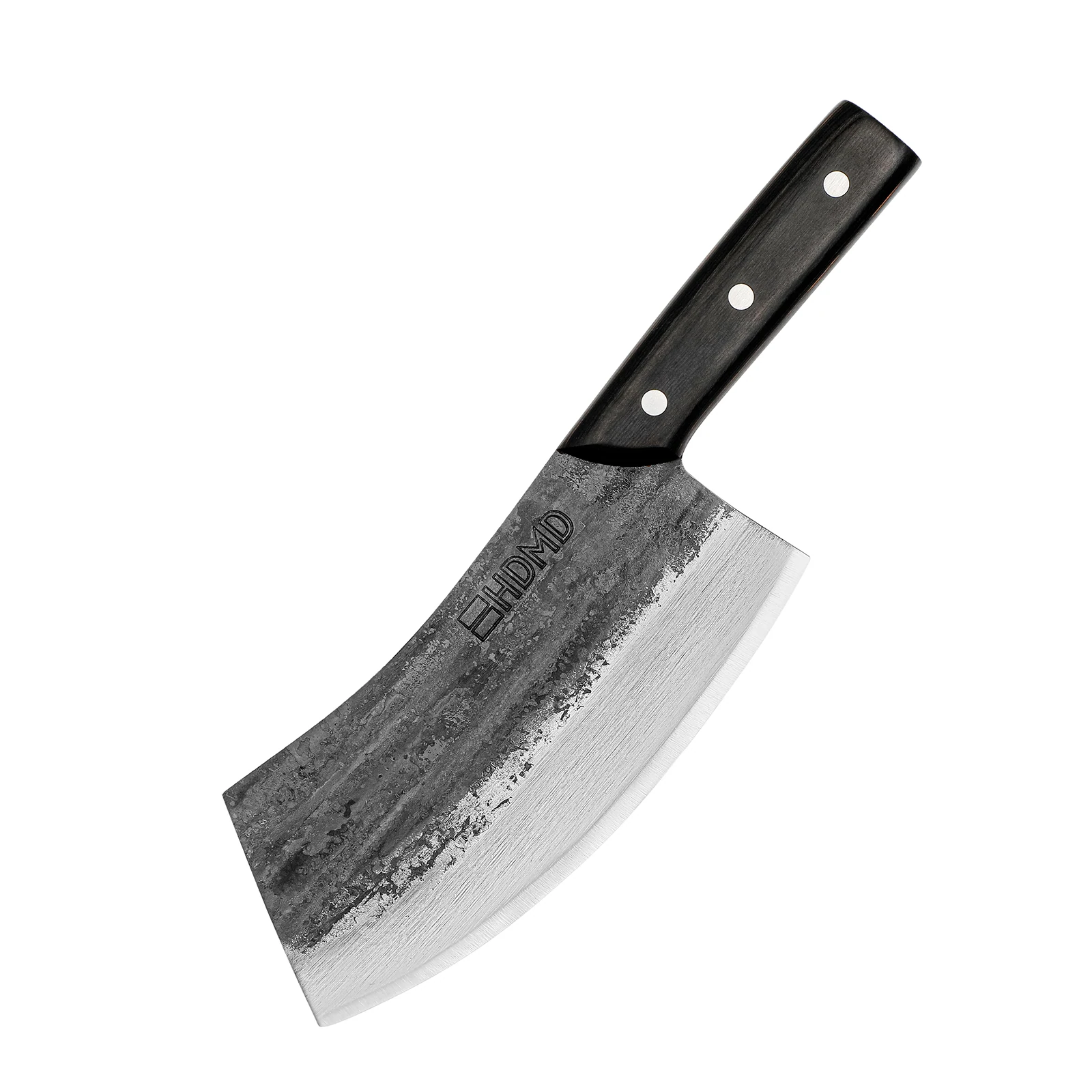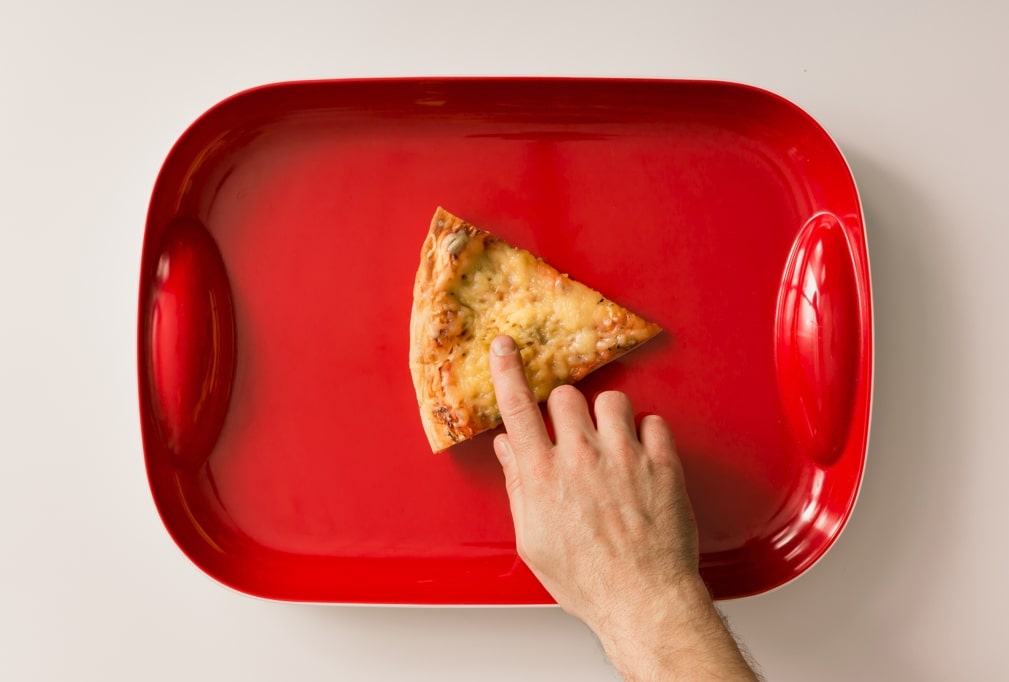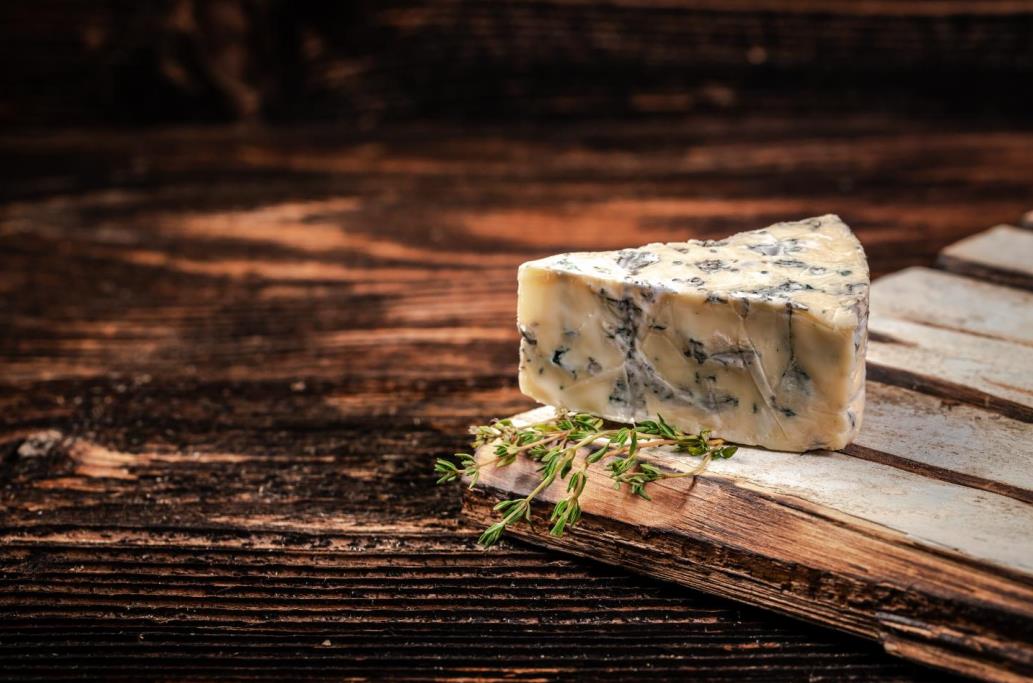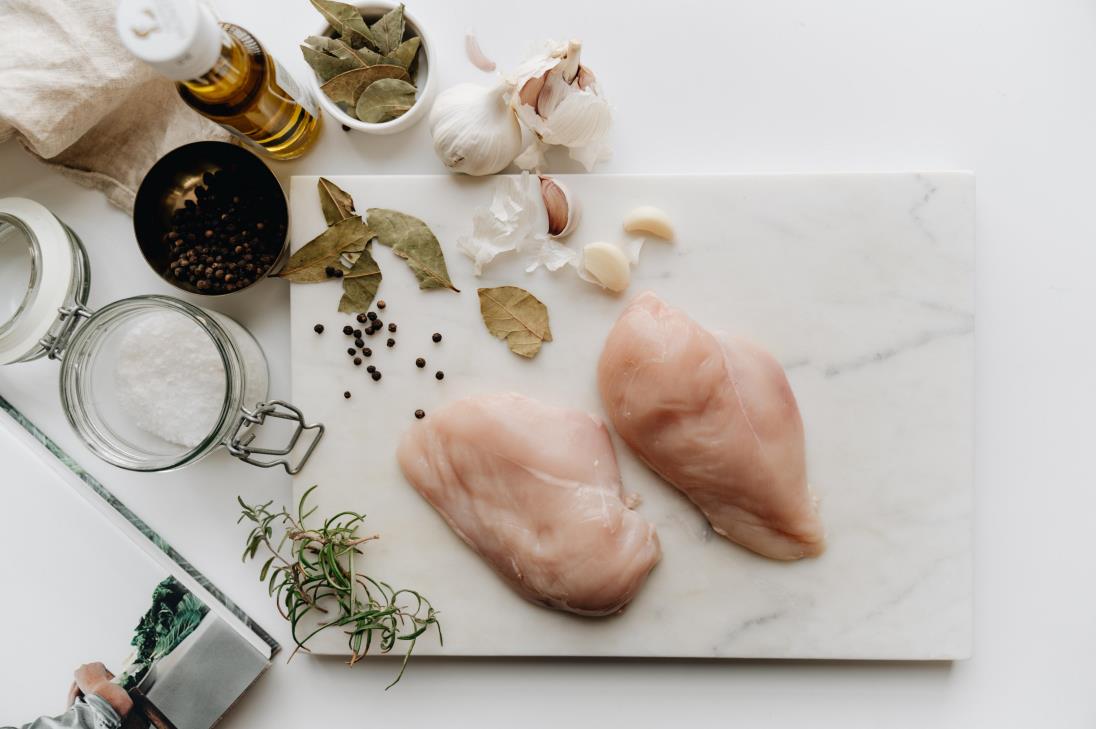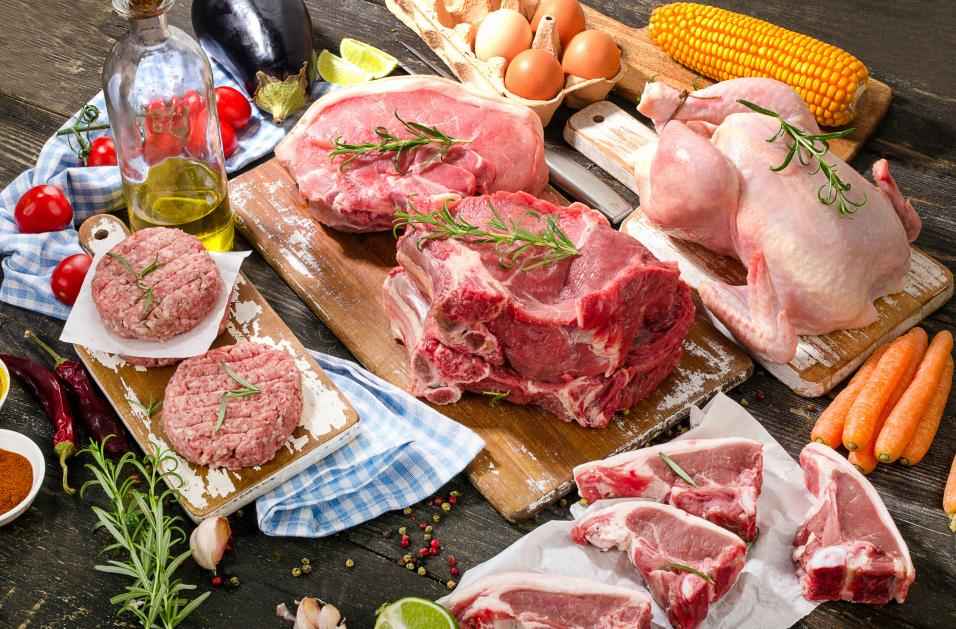Cutting boards play an important role in any kitchen setting — but have you ever considered a glass cutting board? From their dazzling transparency to their sleek designs, glass cutting boards are an intriguingly different option for food preparation. So when asked, “are glass cutting boards good?” what does a chef say?
Glass cutting boards aren’t the best options for your kitchen. While they look great and are easy to clean, they dull kitchen knives, shatter easily, and can be pretty slippery. Moreover, you require more effort to cut and slice your food on glass surfaces — which may not always be practical when preparing dinner fast.
Throughout this article, we’ll discuss glass cutting boards in greater detail, and we’ll cover the pros and cons and suggest better cutting board material alternatives. Read along.
Table of contents
An introduction to glass cutting boards
Glass cutting boards come in different shapes and sizes, much like their plastic and wood counterparts. Yet, they have a unique transparent surface that makes them look beautiful in any kitchen. Some come with intricate designs to enhance their aesthetic value, making them attractive decorative pieces for your kitchen.
The glass used is typically tempered, which gives it an extra layer of strength. Tempered glass cutting boards are specially treated for increased durability and endurance. Designed to be five times stronger than standard glass, it’s the preferred glass cutting board option.
Are glass cutting boards good?
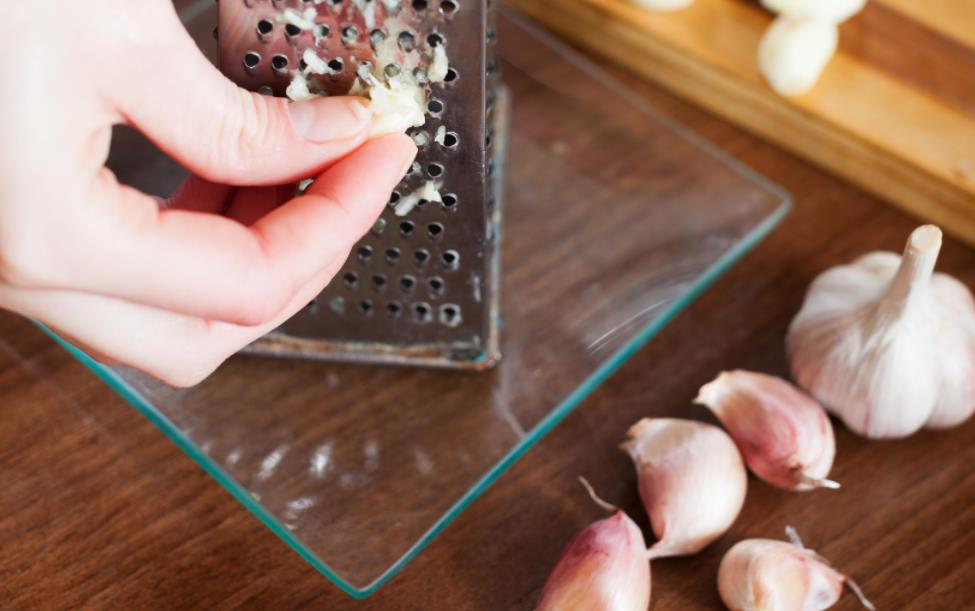
To answer that question definitively – no. You don’t want a glass cutting board as part of your arsenal of kitchen tools. They add to the aesthetics of your kitchen, but they are not practical and are pretty dangerous too.
When wet, glass cutting boards are unbelievably slippery and unstable. Any knife you use on them will be at risk of slipping and potentially injuring you. Also, upon motion impact with another object or kitchen utensil, they can shatter, creating an unsafe environment and possibly cutting you with the shards.
Are glass cutting boards bad for knives?
The hard surface isn’t forgiving on knives, either. It will damage the blade upon contact and even blunt it with continued use. As with any hard surface, your knives will suffer and eventually become dull. Most chefs recommend wooden cutting boards to avoid this issue.
Glass cutting boards: pros and cons
The performance of glass cutting boards depends on what you plan to do with them. Generally, they’re not the best option for meal prep. However, they have unique features that offer several benefits.
Glass cutting board pros
Below are some advantages of using glass cutting boards.
Eco-friendly and can be recycled
Glass never wears out as a raw material. You can recycle it over and over by blending, melting, and crashing. Doing so saves lots of other alternate resources like trees and protects the environment against non-degrading compounds like plastic.
So when you buy a glass cutting board, you are indirectly protecting the environment against the adversities of environmental pollution. Wood requires you to cut down a tree, and plastic (although recyclable) has a devastating environmental impact.
Easy to clean and low maintenance
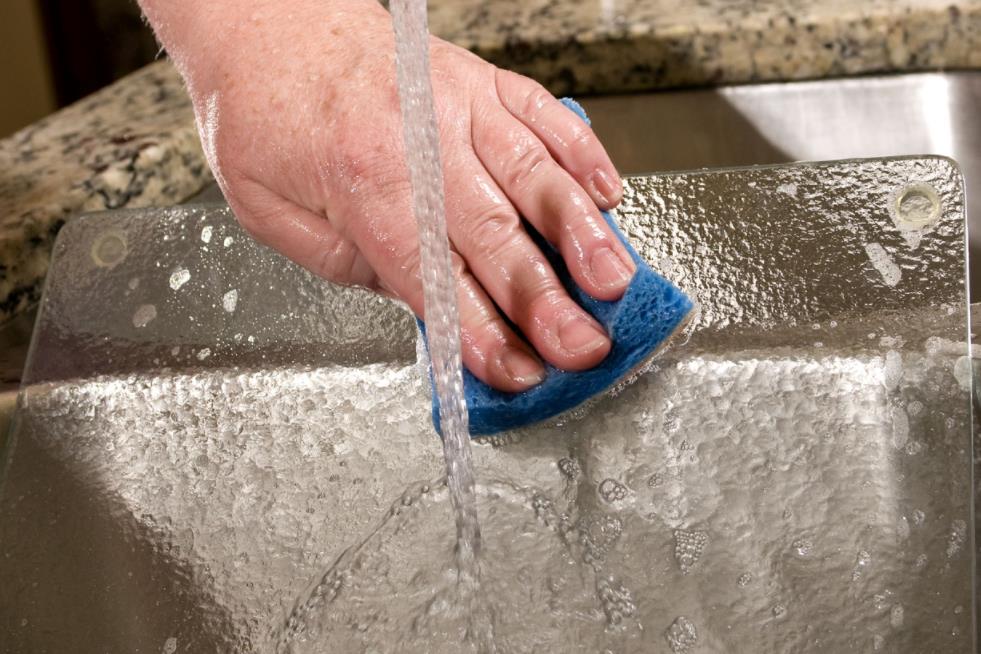
Glass cutting boards are super easy to clean. A simple swipe of a damp cloth or sponge is enough to get rid of any mess. Glass is not porous that will trap food particles as wood does, nor does it develop grooves like plastic, meaning it’s ready to be reused as soon as you have finished with it.
With maintenance, glass cutting boards require very little. Unlike wooden cutting boards, you don’t need resources to keep the board in top condition. Tempered glass can go in the dishwasher for added convenience but check the manufacturer’s instructions first.
Glass cutting boards are hygienic
The glass surface is nonstick, meaning it doesn’t hold up particles and bacteria. You can use it to chop your meat and vegetables, and you don’t have to worry about food contamination. Also, because it’s non-porous, no bacteria can get trapped inside the glass like most wooden surfaces and dented plastic boards.
If you have the slightest suspicion the board might be contaminated, you can use strong cleaning chemicals like bleach, and the toxicity will wash off once you rinse it in running water.
Durability
Glass cutting boards are highly durable, more durable compared to wood and plastic. However, there’s a caveat. When cleaning, carrying the board around, or using it to chop your ingredients, chances are you’ll hit it on another object. Glass cutting boards are pretty vulnerable and will shatter on impact.
We’ll discuss this caveat in greater detail as part of the cons of using a glass cutting board because this vulnerability doesn’t immensely impact longevity unless it happens.
You are likely to scrub a cutting board when washing it or use a knife when cutting ingredients. Often, that will leave the board with signs of wear, like crevices and knife marks. That’s quite normal on some types of wooden cutting boards and mostly on plastic boards.
Interestingly, you won’t see this happening on glass cutting boards. As a result, you’ll likely replace your wooden or plastic board faster than your glass cutting board.
Relatively inexpensive
We often associate glass cutting boards with luxury and, in most cases, tend to believe they are expensive. However, these boards are among the cheapest alternatives you can go for. You’ll find that glass cutting boards don’t require much time and effort in designing and manufacturing, significantly reducing the costs.
Resin boards, followed by hardwood boards, are among the most expensive because of the process and associated costs of raw materials.
Glass cutting boards cons
Below are reasons why you shouldn’t use glass cutting boards
Dull knives
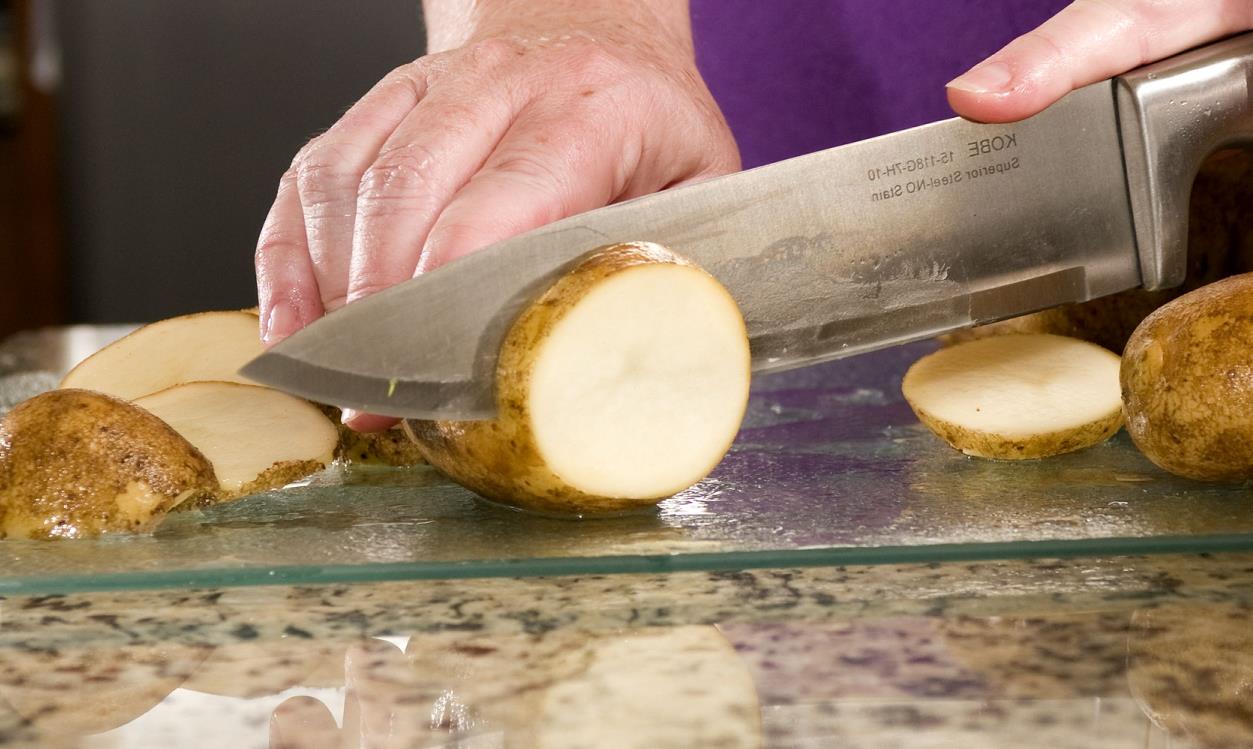
The number one reason why chefs don’t recommend glass cutting boards is that they dull knives. Glass cutting boards have extremely hard surfaces. Constant use of such surfaces on your blades will cause them to lose their sharpness.
Every strike it makes on the hard surface will chip away at your knife’s edge and make it duller over time. Therefore, if you own expensive and sharp blades, it would be best to opt for a softer material like wood or plastic that won’t take away your knives’ sharpness so quickly.
Vulnerability to breaking
We briefly talked about this earlier. Most glass cutting boards are highly vulnerable and breakable, significantly when dropped. That’s why you need to be extra careful while using them and avoid dropping them at all costs.
Broken glass can cause injuries like cuts, and when the particles get into your food, it can cause severe health issues. If you opt for glass cutting boards, you must use them cautiously.
Slippery when wet
Another downside of glass cutting boards is that they get slippery when wet. Not only can this be a nuisance, but it can also be dangerous.
For instance, when cutting ingredients, the board may slip away from you and cause an injury. If the board cannot stay in place, it will be harder to cut ingredients.
Requires more effort to use
Unlike wooden or plastic cutting boards, glass cutting boards require more effort. It doesn’t have the same grip as the other two, meaning you have to put extra pressure when holding down the ingredients on the surface.
Irritating sound
Another often overlooked downside of using glass cutting boards is the irritating sound it produces when cutting. The sound is quite loud and can be a nuisance if you’re in a quiet environment.
Not suitable for heavy-duty tasks
Unlike wooden boards, glass cutting boards can’t handle heavy tasks. Heavy chopping, for instance, could cause the board to crack or even break. If you tend to do heavy-duty jobs like chopping bones or hard-skinned vegetables, you should opt for something else like a butcher block.
Handpicked for you
True cutting power in the palm of your hand
What materials are good for cutting boards?
In the end, you have to settle for a cutting board material that doesn’t damage blades, is safe to use, is easy to clean and maintain, and is reasonably priced.
Below are some glass-cutting board alternatives that make excellent options:
Wood
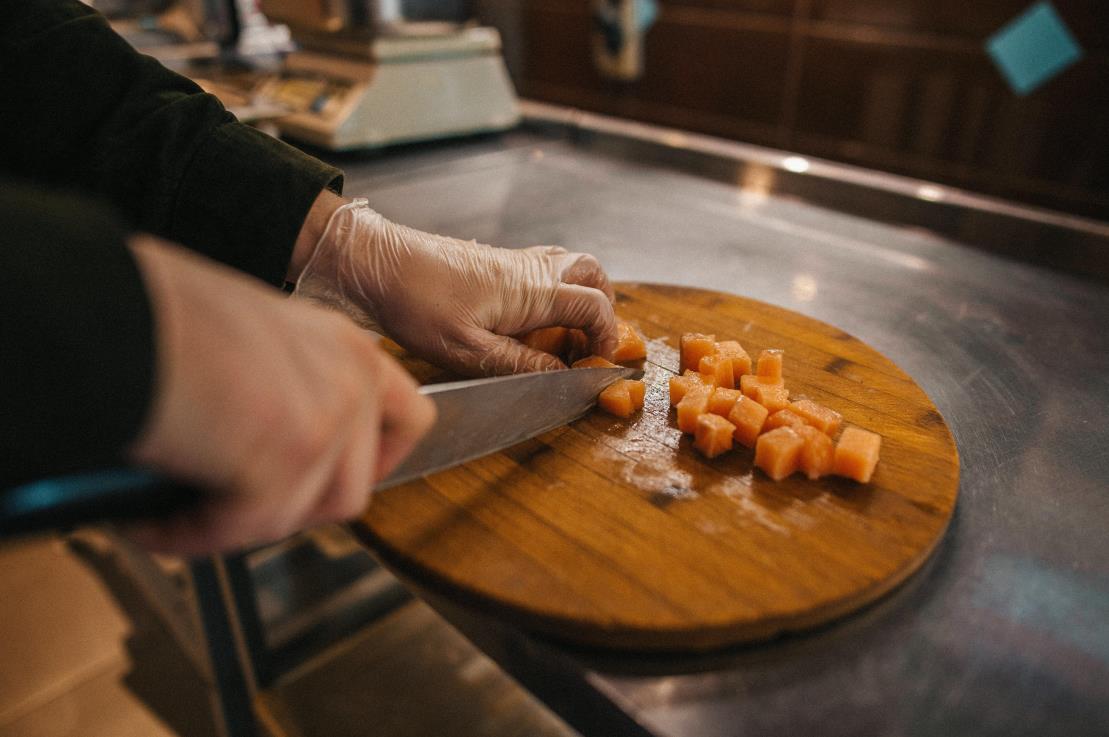
Wood is the most preferred material for cutting and chopping purposes. Hardwoods like maple, teak, and walnut make excellent cutting boards. They’re tough, so they don’t easily get scratched or gouged.
Most wood types have natural antimicrobial properties that make them safe to use. Moreover, most hardwoods are hard enough to withstand the pressure and force of knives but soft enough to preserve the sharpness of the blade.
Plastic
Plastic is a popular option for cutting boards because it’s inexpensive. It’s also lightweight and doesn’t dull knives. Cleaning a plastic board is easy — just toss it in the dishwasher. One downside of plastic boards is that it quickly develops scratches and grooves, which can harbor bacteria.
Bamboo
Bamboo is an excellent alternative to traditional plastic and wood boards, as it’s harder than both. It’s perhaps the most eco-friendly material for cutting boards — it’s renewable and naturally resistant to bacteria. Bamboo cutting boards are also durable and add to the kitchen’s aesthetic appeal.
How to utilize a glass cutting board
We don’t vouch for glass cutting boards or recommend buying them in the first place. However, if you already have one, there are a few ways to utilize it.
- Use it as a charcuterie board: Glass cutting boards make excellent charcuterie and serving boards. The sleek design and the transparent surface will make your charcuterie spread look more appetizing.
- Hanging it as decor: You can hang the glass cutting board on your wall as kitchen decor. If the glass board is large enough, you can use it as a message board and leave notes for your family.
Bottom Line
Conclusively, glass cutting boards aren’t the best option for everyday use in the kitchen. While they may look beautiful, the hard surface dulls knives. They tend to get slippery when wet and require extra effort to use. After reading this article, we hope you will be better informed about choosing the right cutting board for your culinary needs.
How about complementing your top-notch cutting board with a great set of knives? At HDMD knives, we specialize in premium, high-quality, high-carbon handmade kitchen knives. Visit our HDMD store today to check out exciting offers and limited offers on free shipping within the US.

